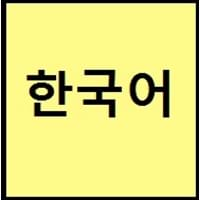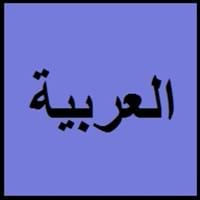Countries
China, Jilin Province, North Korea, South Korea, Yanbian
Algeria, Bahrain, Chad, Comoros, Djibouti, Egypt, Eritrea, Iraq, Israel, Jordan, Kuwait, Lebanon, Libya, Mauritania, Morocco, Oman, Qatar, Saudi Arabia, Somalia, Sudan, Tunisia, United Arab Emirates, Yemen
National Language
North Korea, South Korea
Algeria, Bahrain, Comoros, Djibouti, Egypt, Jordan, Kuwait, Lebanon, Libya, Mauritania, Morocco, Oman, Palestine, Qatar, Saudi Arabia, Somalia, Sudan, Syria, United Arab Emirates, Yemen
Second Language
Not spoken in any of the countries
Not spoken in any of the countries
Speaking Continents
Asia
Africa, Asia
Minority Language
Japan, People's Republic of China, Russia, United States of America
Not spoken in any of the countries
Regulated By
The National Institute of the Korean Language
Academy of the Arabic Language, Arabic Language International Council
Interesting Facts
- Korean has borrowed words from English and Chinese.
- Korean has two counting systems. First, is based on Chinese characters and numbers are similar to Chinese numbers, and second counting system is from words unique to Korea.
- Arabic is 5th common language in world.
- Classical Arabic is the language of Quran and also it is official language. Classical Arabic is the only way to learn Arabic language in academic way and it does not change.
Similar To
Chinese and Japanese languages
Amharic and Hebrew
Derived From
Not Available
Not Available
Alphabets in
Korean-Alphabets.jpg#200
Arabic.jpg#200
Writing Direction
Left-To-Right, Horizontal, Top-To-Bottom
Right-To-Left, Horizontal
Hello
안녕하세요. (annyeonghaseyo.)
مرحبا
Thank You
감사합니다 (gamsahabnida)
شكرا
How Are You?
어떻게 지내세요? (eotteohge jinaeseyo?)
كيف حالك؟
Good Night
안녕히 주무세요 (annyeonghi jumuseyo)
تصبح على خير
Good Evening
안녕하세요 (annyeonghaseyo.)
مساء الخير
Good Afternoon
안녕하십니까 (annyeong hashimnikka)
مساء الخير
Good Morning
안녕히 주무셨어요 (An-yŏng-hi ju-mu-shŏ-ssŏ-yo)
صباح الخير
Please
하십시오 (hasibsio)
من فضلك
Sorry
죄송합니다 (joesonghabnida)
آسف
I Love You
당신을 사랑합니다 (dangsin-eul salanghabnida)
أحبك
Excuse Me
실례합니다 (sillyehabnida)
اعذرني
Where They Speak
South Korea
Algeria, Libya, Maghreb, Morocco, Tunisia
How Many People Speak
Not Available
Dialect 2
Gyeongsang
Sudanese
Where They Speak
South Korea
Sudan
Dialect 3
Hamgyŏng
Levantine
Where They Speak
China, North Korea
Cyprus, Levant
How Many People Speak
Not Available
Second Language Speakers
Not Available
Native Name
한국어 (조선말)
(al arabiya) العربية
Alternative Names
Hanguk Mal, Hanguk Uh
Al-’Arabiyya, Al-Fusha, Literary Arabic
German Name
Koreanisch
Arabisch
Pronunciation
Not Available
/al ʕarabijja/, /ʕarabi/
Origin
Before 1st century
512 CE
Language Family
Koreanic Family
Afro-Asiatic Family, Semitic Family
Subgroup
Not Available
Semitic
Branch
Not Available
North Arabic
Early Forms
Old Korean, Middle Korean and Korean
No early forms
Standard Forms
Pluricentric Standard Korean, South Korean standard and North Korean standard
Modern Standard Arabic
Signed Forms
Korean Sign Language
Signed Arabic
Scope
Individual
Macrolanguage
ISO 639 6
Not Available
Not Available
Glottocode
kore1280
arab1395
Linguasphere
45-AAA
12-AAC
Language Type
Living
Living
Language Linguistic Typology
Subject-Object-Verb
Subject-Verb-Object
Language Morphological Typology
Agglutinative
Fusional, Synthetic
Korean and Arabic Speaking population
Korean and Arabic speaking population is one of the factors based on which Korean and Arabic languages can be compared. The total count of Korean and Arabic Speaking population in percentage is also given. The percentage of people speaking Korean language is 1.14 % whereas the percentage of people speaking Arabic language is 4.43 %. When we compare the speaking population of any two languages we get to know which of two languages is more popular. Find more details about how many people speak Korean and Arabic on Korean vs Arabic where you will get native speakers, speaking population in percentage and native names.
Korean and Arabic Language Codes
Korean and Arabic language codes are used in those applications where using language names are tedious. Korean and Arabic Language Codes include all the international language codes, glottocodes and linguasphere.





